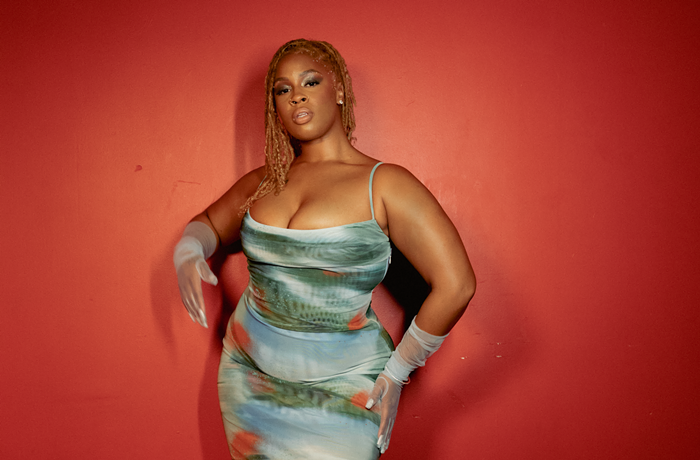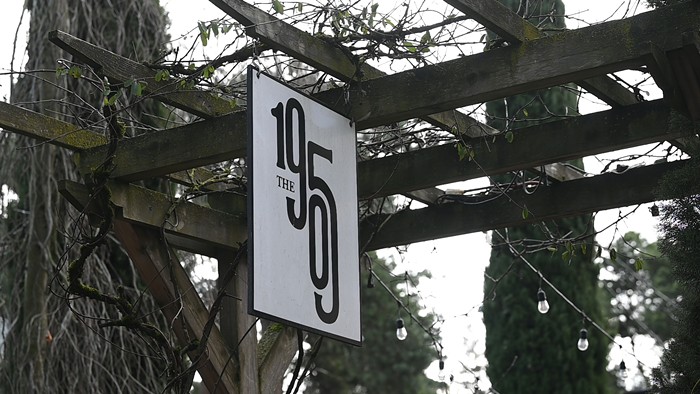w/ The Standard, Braille Stars, The Most Secret Special Guest Portland Music Superstar of All Time.
Fri Feb 8
Blackbird
Larry Crane, world-famous studio engineer and editor of Tape Op, the best home recording magazine available, is a perfect example of how you can bring your interests out of the basement and turn them into a little empire. And, like many basement empires, he was able to start Laundry Rules (his basement recording studio that was a precursor to Jackpot!) by sheer luck of the draw: a car accident. "I got doored on my bicycle! And I got a bunch of money, so I got an eight-track and a mixer," laughs Crane.
That money culminated in Crane recording a Maroons record--"the red one with the bunnies," explains Crane. "That's the only album that came out of there. We did singles for Cat Power and Versus did a track for a TeenBeat comp, and Steve Malkmus did some demos--one of the songs showed up on a Pavement thing. Jr. High did some stuff. There were a bunch of different bands. Then it got too busy, so then it was like, 'We gotta get out, we gotta move!'"
Crane's decision to move to a separate studio in 1997 got a little help from a then-unfamous Elliott Smith. "We both told Rebecca Gates around the same time that we wanted to start 16-track studios, and she was like, 'Wait a minute. You guys know each other!' So Elliott and I sat down to have a little meeting one day. I said I didn't want a partner, but I could use some help. He was like, yeah, I want to do this for a place to make demos. So we just pooled our resources and put the studio together But then he moved to Brooklyn."
Crane got to keep the studio. But the thing was, he never set out to start it--he first began as a musician, in the impacting, underground band Vomit Launch. Crane learned most of his recording techniques from engineers who recorded Vomit Launch records, such as Greg Freeman and John Baccigaluppi (who now publishes Tape Op).
Recording grew on him, however, and eventually became his passion. "If I look back at it, it all makes sense. Cause I'm not a great musician; I really regret ever writing songs that I sang. I can't even listen to my own voice anymore. And when you work with people like Elliott, or Sam [from Quasi], or Corin and Carrie [from Sleater-Kinney], or the Go-Betweens you work with people like that, and you're like, 'I'm not a fucking songwriter, look at these guys!' I'm just so tired of the music world being cluttered with crap, that maybe it's a good position to be in; at least I can take a record and make it that much better by working on it with people," Crane explains.
In the past seven or so years, Larry Crane has done a lot for Portland, recording some of the most well-received independent albums in America just by starting a place where local rock bands would feel comfortable. "I just want people to know we're still around and say thank you to a lot of the musicians. Cause there's certainly a scene built around this place in a way. Whether it's Sam and Janet or Luther Russell and the Richmond Fontaine guys, there's a certain nexus that meets here and have done a lot of records."
"It's been a nice gradual growth," Crane continues. "Actually, you know what the weirdest thing ever was? 'Miss Misery' being nominated for an Oscar. That's just bizarre. That's a song that was done as a demo that I barely remember recording. Elliott would be like, 'Can you help me do something?' and I'd run in there, set some mics up, run tape."
"I was always honored to track stuff with Elliott because he's so great. But we were just doing demos, you know? Big deal, who cares? No care was put into getting it right, whatever. And then to have that song nominated for an Oscar?" laughs Crane. "I always figure, out of all the things I've done, more people have heard that song than anything else I'll ever touch."


















